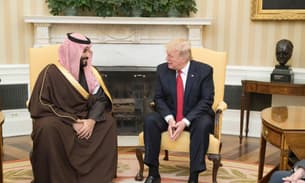
Whose side is the City’s watchdog on?
Nobody’s throwing stones in this banking glass house (www.shutterstock.com).
The Financial Services Authority is meant to be the City’s watchdog but ‘devastating’ internal documents reveal it has secretly co-ordinated high-level lobbying strategies with the industry it is supposed to police.
The documents come from previously restricted minutes of meetings between the FSA and 13 powerful financial industry trade bodies, including the British Bankers Association (BBA) and the Association of Financial Markets in Europe.
The redacted details of 16 meetings – under the trade associations consultative committee (TACC) – between 2006 and 2011, reveal several strategies.
The FSA and Lord Adair Turner have seen regulation as a negotiated partnership, where cosy deals are reached and where it is hard to see who is the poacher and who is the gamekeeper. John Mann, Treasury select committee member
• The FSA discussed how a proposed financial transaction tax would make high-frequency trading ‘prohibitively expensive’, and assessed whether it were possible to form a coalition to block European restrictions on short-selling.
• The authority agreed on co-ordinated effort to influence UK regulatory reforms, including opposition to plans of the business secretary, Vince Cable, for a new super-watchdog that would crack down on corporate governance abuse.
• The FSA discussed blocking new European rules to bring transparency to commodity markets through the European Securities and Markets Authority’s commodities task force.
• The authority discussed the best time for the industry to start lobbying on new EU financial transparency and investor protection rules via the directive known as markets in financial instruments (Mifid). It advised that ‘industry should engage as early as possible and at all levels’.
The Treasury select committee member John Mann described the disclosures as devastating revelations of ‘the real inner workings of the banking sector’.
He said: ‘The regulator and its head, Lord Turner, have paid lip service to their designated role of regulating the industry … they have seen regulation as a negotiated partnership, where cosy deals are reached and where it is hard to see who is the poacher and who the gamekeeper.’
Related story: BBA’s ‘secret’ meetings with ministers
Karel Williams, professor of accounting and political economy at the University of Manchester, said policy makers were much too close to the industry they were regulating. ‘Regulation becomes a process of negotiation without any possibility of regulators maintaining an external, adversarial, relation. Much of what is happening in the UK is undisclosed and non-transparent lobbying.’
The closed TACC meetings are supposed to provide a forum for the industry to highlight emerging risks to the financial markets. But in several instances lobbying tactics were discussed and formulated, with regulator members offering advice.
The BBA provides the secretariat to the committee, whose power was highlighted in its annual report of 2006-7, which contained numerous references to the group’s influence over regulators.
‘Regulation becomes a process of negotiation without any possibility of regulators maintaining an external, adversarial relation.’ Professor Karel Williams, University of Manchester
‘The BBA continues to be heavily involved at a senior level with regulatory policy issues in the UK as well as in the EU,’ the report says.
An FSA spokesman said: ‘We clearly state in our business plan [that] the FSA attempts to influence the international and European policy agenda for the benefit of the UK economy, and we do this by playing a prominent role in a number of EU wide bodies, and supporting the government in its EU negotiations. The FSA is also required by
legislation to take account of the competitive position of the UK financial services industry.’
Extracts
• Discussion on regulatory reform, September 13 2011: [participant] also cited remuneration rules as an example of UK gold-plating which put UK firms at a competitive disadvantage in other jurisdictions.
• Discussion on high frequency trading, September 13 2011: [participant] queried the impact of a financial transaction tax [FTT]. Following some discussion, attendees felt that the most likely outcome was that an FTT would make high frequency trading prohibitively expensive, at least for some firms.
• Discussion on EC proposals on short selling, October 4 2010: [participant] enquired as to the likelihood of a minority being established to block the proposals but as a result of concerns of EU sovereign debt markets, the probability is very small.
• Discussions on Eurozone developments, June 7 2010: [participant] broached the subject of increasing the financial industry’s influence over political developments. The FSA and Treasury are the primary sources of influence, but exerting influence has been difficult for the FSA in the context of the past three years … The Treasury relies on the FSA for technical information and expertise but despite this, the resources were not available to expand, even though this is when it is needed most.’
• Any other business, June 7 2010: [participant] asked about the potential transaction tax. [participant] suggested that it is popular because it is perceived not to cost the taxpayer anything, but questioned whether or not it is a good thing. [participant] affirmed that no concrete decision has yet been made … [participant] expressed a concern over the tax due to its ‘stealth’ nature.’
• Discussion on market priorities, February 8 2010: [participant] sought feedback about the extent and success of the various members in lobbying at international level. Some TACC members advised that whilst they were heard, they felt they had little credibility. A major concern was weak UK Government representation in Brussels.




